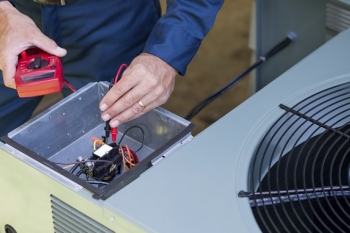Geothermal heat pumps are expensive to install but pay for themselves over time in reduced heating and cooling costs. Learn more about how geothermal heat pumps heat and cool buildings by concentrating the naturally existing heat contained within the earth -- a clean, reliable, and renewable source of energy.
In moderate climates, heat pumps can be an energy-efficient alternative to furnaces and air conditioners. Several types of heat pumps are available, including air-source; geothermal; ductless, mini-split; and absorption heat pumps. Learn more about the different options and how to use your heat pump efficiently to save money and energy at home.
Featured
Live in a mild climate? A heat pump might be your best option for efficient heating and cooling.
Want to get the most out of your heat pump? Proper operation and maintenance of your heat pump will ensure that the system functions at optimal energy efficiency.
If you live in a warm climate, air-source heat pumps might be an efficient way to cool your home, and advances in technology are improving their efficiency in cool climates, too.
Installing this kind of heat pump in your new or existing home can save money while improving the efficiency of how you heat, ventilate, and air condition your more unique spaces.
Absorption heat pumps are air-source heat pumps that run on a heat source -- usually natural gas -- rather than electricity. They are an efficient heating and cooling option for homes with limited access to electricity.









